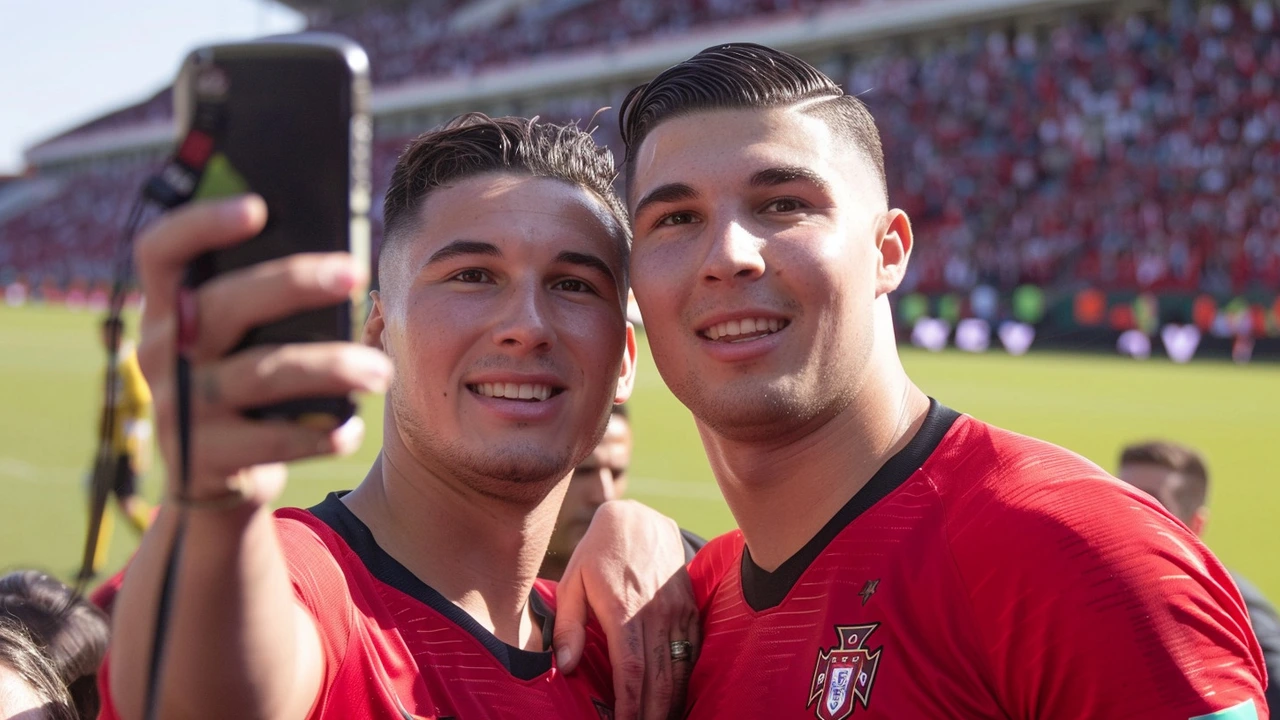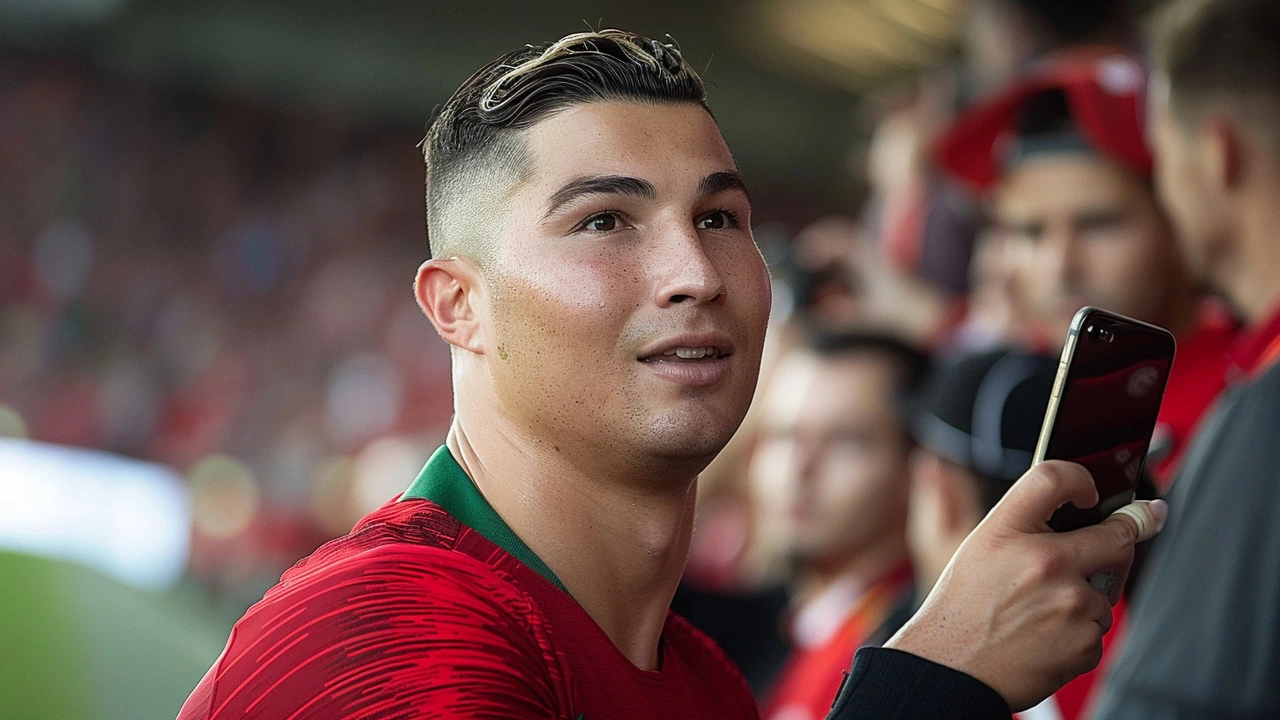
The excitement and fervor surrounding Cristiano Ronaldo are undeniable. His name alone can draw crowds from across the globe, and his presence on the pitch electrifies any stadium. This was evident once again during the Euro 2024 qualifier match between Portugal and Turkey. However, what was meant to be an evening celebrating football’s finest quickly turned into a security nightmare.
As the match unfolded in Germany, Ronaldo's star power was visibly on display, but not just because of his performance. During the game, not one, not two, but six fans managed to breach security and make their way onto the playing field, all with the singular goal of capturing a selfie with the football icon. While fans invading the pitch is not entirely a new phenomenon, the frequency and boldness of these incidents in one match were alarming.
A Growing Phenomenon
Pitch invasions in football have been occurring for decades, often as a show of passionate support or protest. However, the trend has taken on a new dimension with the advent of smartphones and social media. The term “selfie hunters” has emerged to describe fans who disrupt the flow of the game to capture a personal moment with their idols. On this occasion, the target was Ronaldo, whose global appeal transcends geographical and cultural boundaries.
Security Implications
While these invasions may seem like harmless acts driven by admiration, they pose significant security risks. The safety of players, referees, and even the fans themselves is put in jeopardy. An uncontrolled influx of people onto the pitch can lead to serious injuries and disrupt the tightly regulated environment of professional football matches.
In the case of Cristiano Ronaldo and the Euro 2024 qualifier, the ease with which multiple individuals accessed the pitch is a glaring indictment of the security arrangements in place. High-profile matches, particularly those involving globally recognized athletes, require robust and dynamic security protocols. This incident highlights a critical oversight and serves as a wake-up call for event organizers and security agencies.

Crowd Management and Preventive Measures
Ensuring the safety of players while maintaining a seamless game experience is a challenging endeavor. Effective crowd management strategies must combine physical security measures with psychological deterrents. Increased security personnel, barriers, and surveillance technologies are essential, but they must be implemented thoughtfully to avoid creating an oppressive atmosphere for genuine fans.
Equally important is fan education and engagement. Initiatives aimed at making fans aware of the potential dangers of pitch invasions and the severe consequences can be effective. Football clubs and event organizers can harness social media platforms to disseminate these messages consistently.
The Role of Technology
Technological advancements offer promising solutions for enhancing security in sports venues. Innovations such as facial recognition can help identify repeat offenders and monitor crowd behavior in real-time. Smart ticketing systems linked to individuals’ IDs can also limit unauthorised movement within the stadiums. However, implementing these technologies comes with privacy and ethical considerations that must be navigated carefully.

The Draw of Ronaldo
Beyond the immediate security concerns, the incident speaks volumes about Ronaldo’s iconic status. Few players possess the magnetism that he does. Wherever he plays, stadiums are packed, merchandise sells out, and fans are willing to go to great lengths for a fleeting interaction or a cherished photograph. Ronaldo's ability to inspire such devotion is a testament to his impact on the sport and his connection with the wider public.
Lessons Learned
The Euro 2024 qualifier pitch invasions are a stark reminder of the evolving challenges faced by modern sports events. Ensuring the safety and integrity of such events necessitates continuous adaptation and enhancement of security protocols. Stakeholders at all levels, from local security firms to international governing bodies like UEFA, must collaborate and innovate to mitigate these risks.
Fan behavior is reflective of broader societal trends, and as the lines between virtual and physical interactions continue to blur, sports venues must be prepared to address the implications. Developing a holistic approach that encompasses prevention, education, and response is essential in safeguarding the future of football and its players.
In conclusion, while the actions of the selfie hunters at the Portugal versus Turkey match were driven by admiration, they exposed serious gaps in security. Cristiano Ronaldo, with his unparalleled draw, will undoubtedly continue to be a focal point for fans and security personnel alike. For the sport to thrive, ensuring safety and creating a balanced environment where fans can enjoy the game without compromising on security will be paramount.





